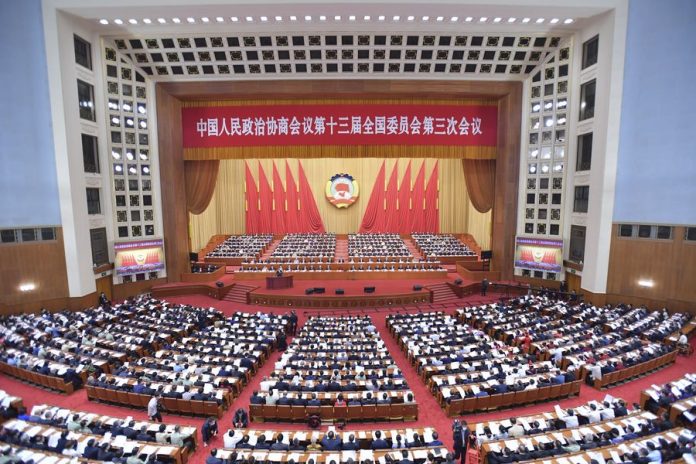Two Macau lawyers heard by Lusa News Agency argued that the national security law advanced by Beijing for Hong Kong is an “atomic bomb” and proves the “desperation” of the Chinese Communist Party (CCP).
Jorge Menezes and Sérgio Almeida Correia, who have taken public positions on issues related to freedom, rights and guarantees in the Macau Special Administrative Region, maintained that this is a “disaster”, a “strategic error” of an “autocratic state” who ‘drew’ a ‘dangerous law’ that will ‘violate’ Hong Kong’s semi-autonomy, also a semi-autonomous Chinese region.
“It is a dangerous law because it is being designed by an autocratic state that punishes political disagreement and the exercise of freedom of expression with the crimes of subversion and betrayal. Worse, it was designed to further suppress Hong Kong protests, ”said Jorge Menezes.
“We have heard pro-Beijing voices say that the protests are acts of terrorism, subversion, secession and conspiracy with foreign forces, so this law could be the atomic bomb that will destroy Hong Kong,” he added.
Sérgio de Almeida Correia, for his part, maintained that the approval of this law is “a tremendous strategic and political error by the Chinese leadership” and “also a sign of despair and isolation from the CCP, which was unable to renew and modernize at the that China progressed economically ”.
Result: “I fear that the result of passing this law will be a disaster for Hong Kong and China itself. It will further radicalize the political struggle, increase the mistrust of residents and their international partners, as well as sharpen relations with Taiwan, and make the city unmanageable, ”he said.
Jorge Menezes also stressed that everything “depends on its wording and application by the Hong Kong courts”, but stressed that “sending agents from Beijing to Hong Kong is a revolting violation of China’s constitutional and international law obligations”.
Despite the reaction of the Hong Kong Government, which guaranteed that the law only targets “a small minority of criminals”, Sérgio Almeida Correia is of the opinion that “the people of Hong Kong, and not the radical minority, will pay, once again, the mistakes of Beijing’s bad choices, bad governance, disrespect for the word given and the rampant red capitalism into which both business and political elites have plunged ”.
His colleague, Jorge Menezes, highlighted the differences with the old territory administered by Portugal: “Macau’s law is more restrictive, as it does not punish these conducts in outer space. In Macau, secession and subversion are only punished if they are carried out ‘through violence or through the practice of other serious illegal means’. In Hong Kong it is vague, comprehensive, equivocal and recently extended to include conduct that constitutes a ‘serious threat to national security’ ”.
“The damage will be great and difficult to recover in the next decade,” predicted Sérgio Almeida Correia.
The National People’s Congress (NPC), China’s highest legislative body, today approved Hong Kong’s controversial national security bill.
The United Kingdom, the United States, Canada and Australia have already accused China of violating its international obligations.
The law in question prohibits “any act of treason, separation, rebellion, subversion against the Central People’s Government, theft of state secrets, the organization of activities in Hong Kong by foreign political organizations and the establishment of links with foreign political organizations. by Hong Kong political organizations “.
Among the seven articles proposed by Beijing, there is a provision for a legal mechanism that allows the NPC Standing Committee to articulate legislation aimed at preventing and punishing a number of assumptions, including “subversion against state power”.
Hong Kong returned to China in 1997 under an agreement that guaranteed the territory 50 years of autonomy, under the principle of “One country, two systems”.
As with Macau since 1999, Hong Kong has agreed a 50-year period with a high degree of autonomy, at the executive, legislative and judicial level, with the central Chinese government being responsible for foreign relations and defense.




















